Living with and beyond Patriarchy:
My Experience as a Migrant Worker, Migrant Wife and Migrant Activist in Taiwan
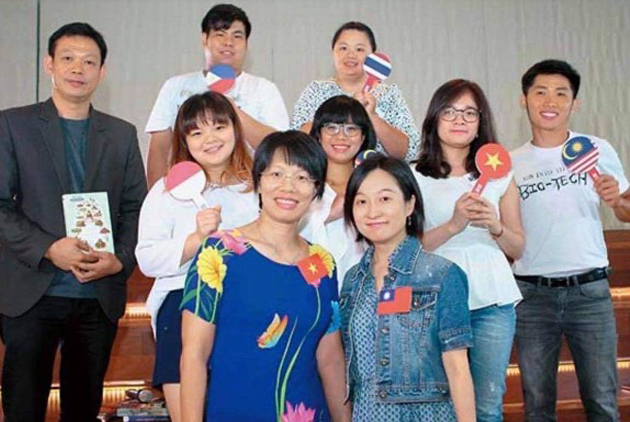
Source:Nguyễn Thị Thanh Hà, Isabelle Cheng
Marriage is a commitment between the two. So we must start from respecting human rights and treat each other as a family member rather than an outsider so that family is a place for mutual support.
Views
My Experience as a Migrant Worker, Migrant Wife and Migrant Activist in Taiwan
By Nguyễn Thị Thanh Hà, Isabelle Chengweb only
It has been more than three decades since Southeast Asian nationals began to work and establish their families in Taiwan. Men and women from the Philippines, Thailand, Indonesia, Vietnam and Cambodia filled the labour shortage in construction, fishing, manufacturing, care and agricultural industries in Taiwan, whilst the women became members of Taiwanese society through marriage and subsequent family formations.
This ongoing regional migration flow has enriched the socio-cultural landscape of Taiwan. From being a largely ethnically homogeneous society with a minority community of diversified Austronesian aboriginals, Taiwan is now considered a multicultural society where the respect for, and appreciation of, differences is said to be the norm.
And it has been celebrated that, concurrently, gender equality has also been on the rise for the past two decades.
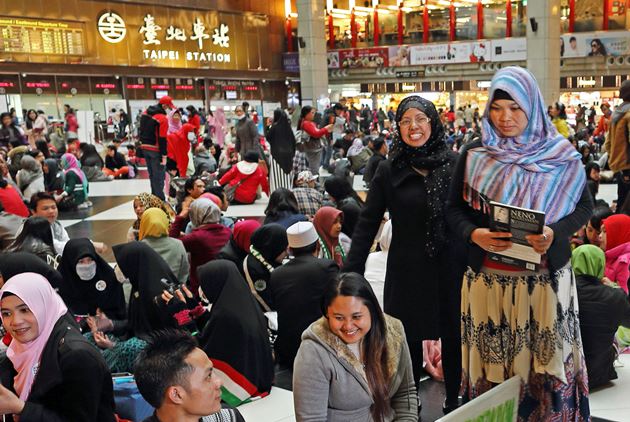
Nevertheless, this development towards a multicultural society has not been smooth or unchallenged. The case of Nguyen Quoc Phi (阮國非), an undocumented Vietnamese migrant worker shot dead by the policy in August 2017, is a critical reminder. In the meantime, migrant spouses from Southeast Asia continue to be seen as bartering their marriage for a better material life or falling prey to abusive marriages. I consider myself in a unique position in this gendered framing.
I have experienced life as a migrant worker, and I am also a migrant spouse. As someone who believes in gender equality and women’s rights, I am hoping that by sharing my experiences, particularly how these migration labels (migrant workers, migrant spouses) have affected our life, we can see multiculturalism take roots, in Taiwan and beyond, in those families where a migrant worker is hired or where a migrant wife/mother has made her home.
I am from Vietnam. It is challenging to grow up as a woman in Vietnam. Confucianism continues to affect Vietnamese society even after the nation’s independence from the French colonisation and its adoption of a socialist system.
Under Confucianism, women are not treated as permanent family members since they will leave home for their husband’s family after they get married.
After getting married, a wife is expected to produce children, particularly sons. Known as ‘son preference’, this preference is grounded on the belief that only sons can continue the family lineage and only sons are entitled to inheritance. If a wife fails to produce a son, she will be treated with disrespect, and her husband may use this as an excuse to get a divorce or have an affair for the sake of bringing a son to the family.
Take my family as an example. My mother gave birth to three girls, and I am the second daughter. My mother was not planning to have another child after me, but the fortune teller convinced her that she would have a son, so she got pregnant.
This was against the family planning law, and this made her ineligible for membership of the Vietnamese Communist Party. Nevertheless, it was a girl again, my younger sister, who is nine years younger than I. After my sister was born, my mother took a contraceptive procedure and could not give birth again. Although this did not lead to my parents’ divorce, it remained an issue between them and my father is not particularly close to us.
To me, son preference and the resultant pressure on women to produce sons is a form of gender-based violence.
To survive in this patriarchy, a Vietnamese wife has to become the decision-maker of her family. To do so, she has to work really hard. It is believed that women’s place is at home, and, at home, she is responsible for looking after the children and doing all the housework. Her husband does not know how to do it, and he is not willing to do it, either. If she wants to secure her status in the family, she has to be financially independent, which is also necessary to protect herself.
In Vietnam, a successful woman is one who shoulders both her public and private responsibilities. If she is successful in the public domain but cannot establish a family or cannot look after her family well, she would be seen as a loser. If she loses her marriage or is abandoned by her husband, her natal family will not look after her. Although much progress has been made with respect to this phenomenon, there is still a long way to go to reach gender equality.
Fortunately, economic growth driven by labour-intensive industries has taken place in Vietnam. For women, this is a mixed blessing. On the one hand, the demand for women’s labour in the manufacturing sector is high. It is labour-intensive work, and it pays little, so men would not do it.
However, the statutory maternity leave is six months and, to get around such laws, some businesses ask women to sign a contract that forbids them from getting married or getting pregnant for a certain duration. Business owners do not want to waste their training on women who will soon leave the job. This puts women in a dilemma: they need to get married and are pressured to give birth, but they also need a job.
For the Vietnamese, education is most important. However, people do not think much of education for women. If a woman is literate, it is good enough; high school education is sufficient for women to find a job. My father is not particularly supportive of our education. He did not spend money on us going to a cram school. Still, my younger sister and I passed the university entrance exam, so we went, but little would I know that soon after I graduated from university, I would become a migrant worker at a factory in Taiwan.
As a post-industrial economy that suffers a chronic labour shortage, Taiwan has started recruiting migrant workers from Indonesia, Thailand and the Philippines since 1992 and, starting in 2000, from Vietnam as well. (Read more:The expediency of employing Southeast Asian caregivers in Taiwan)
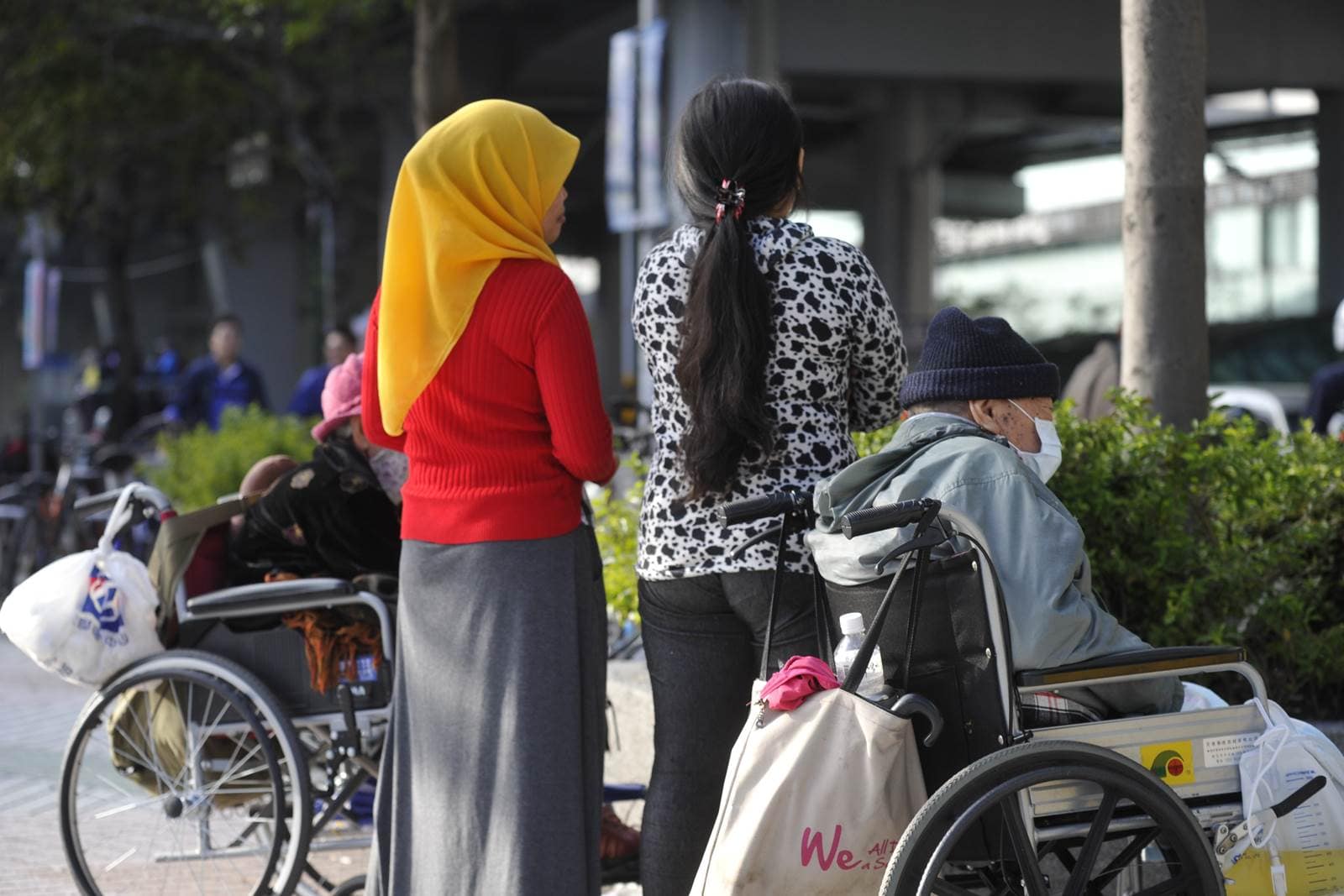 (Source: CommonWealth Magazine)
(Source: CommonWealth Magazine)
In Taiwan, working on the assembly line at a factory only requires secondary-level education, but brokers could bring university graduates from Vietnam. After graduating from Vietnam National University, Hanoi with a BA in French Literature, I spotted a Taiwanese job advertisement before I had found a job at home. I told my father about it, and he was not worried – he thought if this were human trafficking, they would look for pretty girls, not me! So I packed up and went to Taiwan.
I worked at an electronics factory and was put in the night shift. My co-workers were middle-aged Taiwanese women who had only primary or secondary-level education. They were surprised that I had a university education. I am always interested in learning languages. So before going to Taiwan, I packed into my luggage Vietnamese–Chinese dictionaries and Chinese language learning materials – these were all I had to teach myself the Chinese language.
My other ‘learning resource’ was that I was not embarrassed to communicate in poor Chinese with a lot of gestures. Gradually I learned to recognise Chinese characters, and I passed a Chinese language test at B2 level. I thought with this certificate and my work experience in Taiwan, I could find jobs after returning to Vietnam at businesses run by Chinese people.
However, I met my future husband, and we got married. I returned to Taiwan as a wife. When I was working at the factory, I saw that Taiwanese universities were giving generous scholarships to foreign students, but I was not entitled to them because I was a migrant worker. After returning to Taiwan as a wife, I enrolled in a postgraduate course. My husband was supportive, but the extent of his support was limited.
Taiwan may have reached a higher level of gender equality, but that does not mean that men will do housework. My husband belongs to an older generation who thought men need not do that.
Looking back, I think I have held all the statuses conferred on foreigners. I was a migrant worker, a migrant spouse and a foreign student. I teach the Vietnamese language at university and I have published Vietnamese language books for Chinese-speaking learners, so I am also an academic of foreign nationality, and I used to run a private Vietnamese language school and a Vietnamese restaurant.
Each of these identities has brought different ideas and inspirations to me.
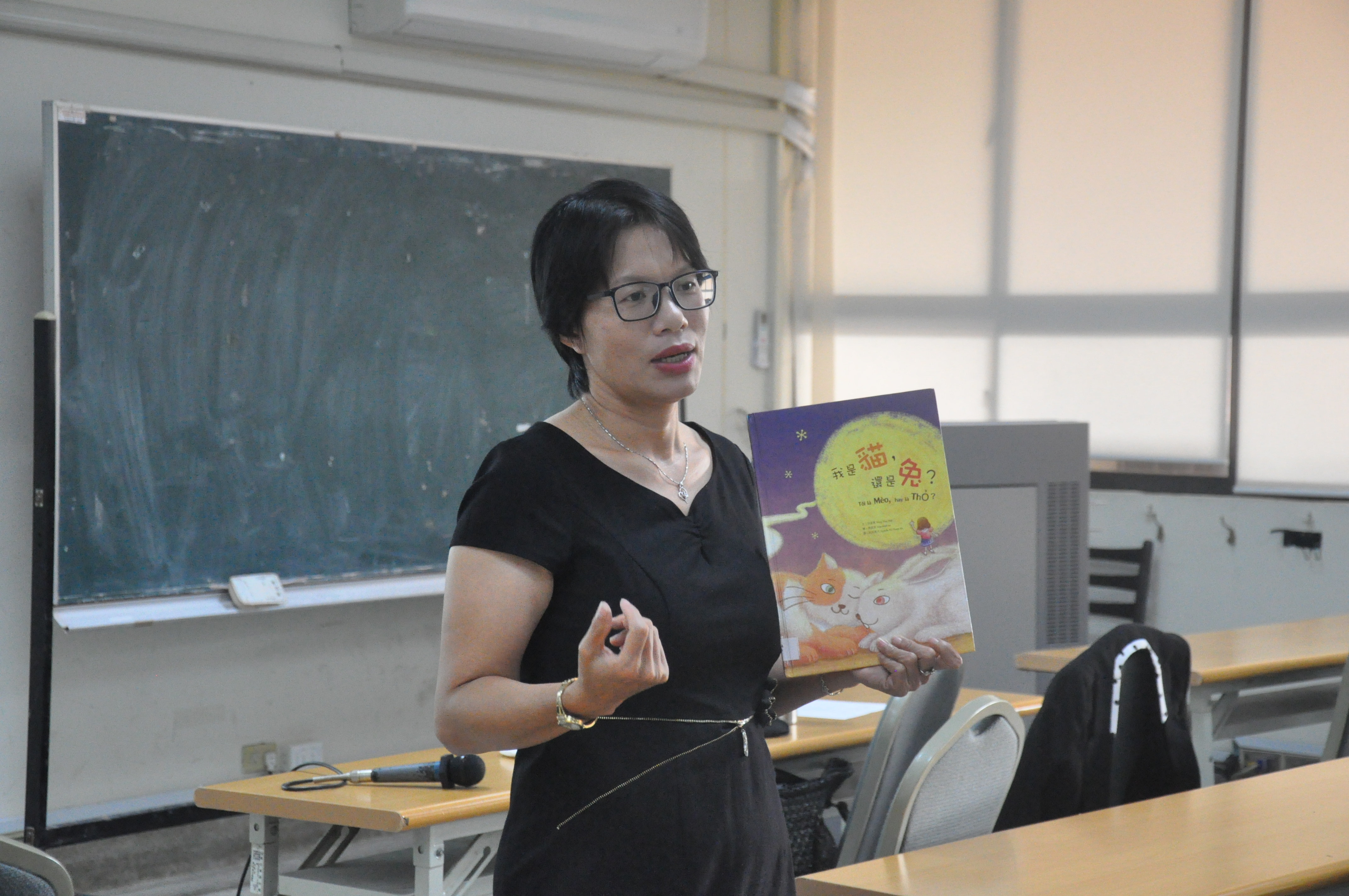 (Source: Nguyễn Thị Thanh Hà, Isabelle Cheng)
(Source: Nguyễn Thị Thanh Hà, Isabelle Cheng)
When I was a migrant worker, I thought my suffering was temporary. After I got married, I realised that I was going to reside and grow roots in Taiwan. I was also studying History for my postgraduate degree, so I felt I was coming to know Taiwan more as a member of society and I needed to introduce Taiwan to those who do not know her. Besides, I am a Vietnamese mother. I cannot let my children be cut off from my Vietnamese culture. So I have been trying to bridge across two cultures. I think I have done well. My children speak Vietnamese, and they love my cooking of Vietnamese cuisine!
Being a migrant spouse and mother enabled me to understand cultural practices from a gender perspective. And, from that perspective, I think the cultures of Taiwan and Vietnam are similar in several respects. Amongst them is the difficulty of maintaining an amicable relationship between a mother-in-law and a daughter-in-law.
One common friction between the two is how to manage post-natal care. In Taiwan, it is believed that proper postnatal care, particularly the first month after a woman gives birth (known as ‘sit through the month’) is critical for women’s gynaecological health.
Traditional practices encouraged by mothers-in-law include not washing hair, not taking a shower and consuming ‘extra nutritious food’ such as oily fish soup or chicken stewed in strong rice liquor and sesame oil. However, in Vietnam, for postnatal care, women prefer to consume non-greasy food with light seasoning and scent their rooms with aromatic herb incense.
I have seen how this difference makes Taiwanese mothers-in-law and their foreign daughters-in-law unhappy towards each other; particularly as most of them cannot speak each other’s language. My mother-in-law passed away before we got married, so my mother came from Vietnam to look after me. I was fortunately spared ‘sitting through the month’ in the Taiwanese way.
To be a mother in Taiwan and in Vietnam means that children’s education is our priority. However, I noticed that children in Taiwan have a heavy workload.
Most of their parents work so children go to cram schools or ‘talent schools’ after they finish at school. It is believed that these extra tuition hours will enhance their academic competitiveness and help them earn high grades at exams. To support children’s education has also become a source of pressure on migrant mothers if they are not proficient in the Chinese language. (Read more: The exclusion and assimilation of immigrant women in Taiwan)
Currently, a total of nearly 600,000 migrant spouses (men and women) reside in Taiwan, 60 percent of whom are from China and around 110,000 of whom are Vietnamese.
Predominantly women, most of them arrived in Taiwan in the last decade (2000–2010). A great number of their marriages are arranged via commercial matchmaking services, which means that there may not have been strong affection before the couple got married.
These couples may not know each other well, may not be able to communicate with each other, and may have very different expectations of their relationship. For those who have a wide age difference, in some cases 30 years apart, their marriage is in effect one that crosses two generations.
Because of these and other issues, their marriages become problematic, these couples are seen as causing social problems, and their families are considered malfunctioning. Migrant spouses from Southeast Asia are often seen as lowly-educated ‘gold-diggers’ or miserable victims of abusive marriages, but both sides of the marriage suffer a very negative image and are subject to media stereotyping.
In response, in 2004, the government of Taiwan established a special fund that financed family service centres founded by local governments where migrant spouses can get a range of help. They can enrol themselves on Chinese language courses, vocational training, or learn childcare skills or legal knowledge. This helps their integration and employment.
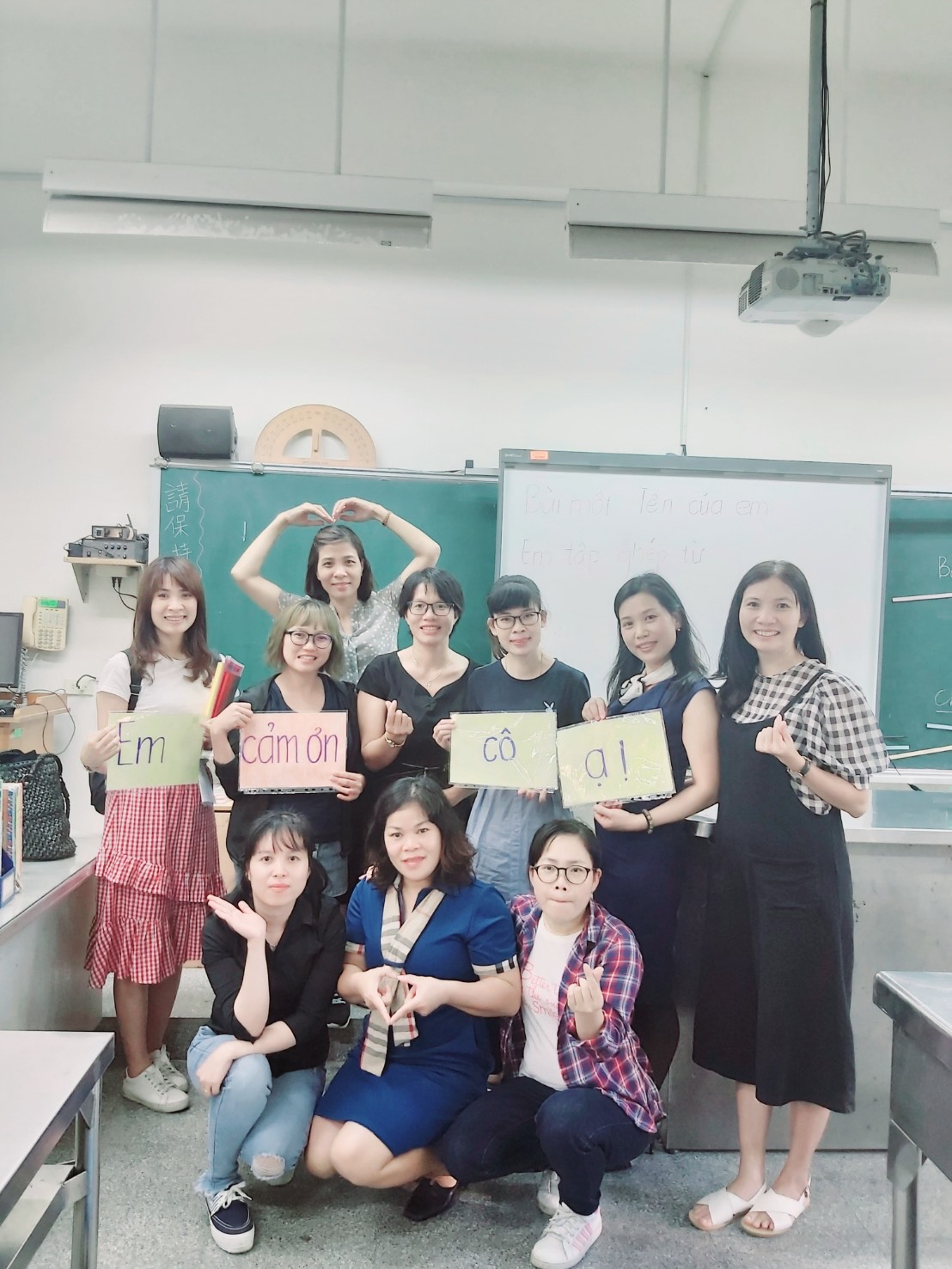 (Source: Nguyễn Thị Thanh Hà, Isabelle Cheng)
(Source: Nguyễn Thị Thanh Hà, Isabelle Cheng)
Interestingly, these courses also motivate the media to produce more diversified reports about migrant spouses’ experiences. Situating them in a family setting, some notable series of such reports include ‘Stand Up in Taiwan’, ‘Greeting from Taiwan’, ‘Building a New Taiwan’, ‘Karma Makes Us A Family’, and ‘We Are Family’. In these reports, migrant spouses are able to show their home-building efforts and their dedication to looking after their children. They work hard whatever their employment is. They cook, teach and stand for election as city councillors or legislators. The government’s moves, together with migrant spouses’ own efforts, have gradually reduced the stigma.
I do not see myself as an activist.
I am just telling those I come across my life stories and my ideas. My master’s degree has helped me a lot. Before I acquired it, I was nobody. After that, I had a professional title accredited by a good university. I started around 2007–2008, when the Taiwanese government had already offered orientation classes for migrant spouses.
More recently, the government began to see mixed children as an asset for Taiwan, so funding is given to support the teaching of Southeast Asian languages spoken by migrant mothers. I know Taiwan aspires to multicultural values, but I also know that some people are unfriendly and discriminate against Southeast Asian people.
I hope to change their mindset so that they will know that not all migrant spouses are victims of abusive or sham marriages. Everyone has the right to pursue happiness. If their marriages do not go well or end in divorce, it is not their fault.
Home is everyone’s safe haven as long as the family is a place for an equal and sincere relationship. However, home-building is not a one-person job; marriage is a commitment between the two. So we must start from respecting human rights and treat each other as a family member rather than an outsider so that family is a place for mutual support. When all families are such a place, we can build a harmonious and equal society.
About the author:

Nguyễn Thị Thanh Hà is a PhD candidate in History at the National Cheng Kung University, Taiwan, and an activist defending migrant women’s rights, including the right to speak our languages to our children.
Isabelle Cheng is Senior Lecturer in East Asian and International Development Studies at the School of Area Studies, History, Politics and Literature of the University of Portsmouth. Her research focuses on migration and the Cold War in East Asia.
Have you read?
♦ The Rootless: Migrant Labor through the Eyes of the Oppressed
♦ When the One in the Dark Speaks, Will You Listen?
Uploaded by Penny Chiang






